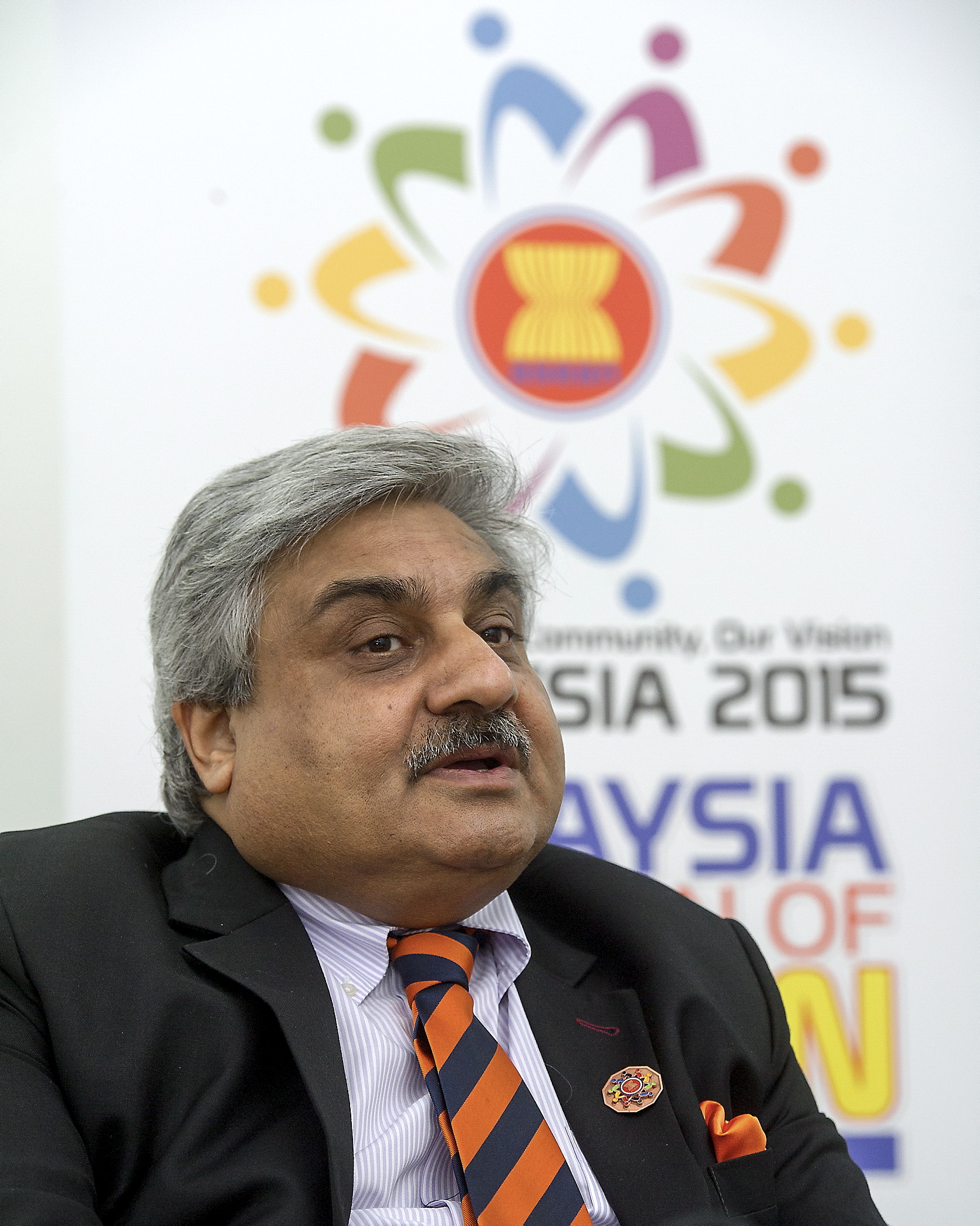ID :
376125
Mon, 08/03/2015 - 11:29
Auther :
Shortlink :
https://oananews.org//node/376125
The shortlink copeid
Maritime Security Remains A Global Concern, Says India's External Affairs Secretary

By Chandravathani Sathasivam
KUALA LUMPUR, Aug 3 (Bernama) -- India expects maritime security issues in the South China Sea, which is an important route for international trade, to be prominently discussed during the 48th ASEAN Ministers' Meeting (AMM) and related meetings.
India's External Affairs Secretary (East) Anil Wadhwa (picture) said given the fact that approximately 90 per cent of international trade was undertaken through sea routes and 50 per cent of global maritime trade passed through the South China Sea, the complex and evolving maritime security situation in the South China Sea remained a global concern.
In line with this, he noted the importance of the East Asia Summit (EAS) Foreign Ministers' Meeting and the ASEAN Regional Forum (ARF) as pre-eminent regional fora to discuss security issues amidst the world, in particular the East Asia region, grappling with challenges like terrorism, piracy, arms smuggling and human trafficking.
"These are challenges of transnational nature and therefore, require concerted international effort," Anil told Bernama ahead of the AMM, Foreign Ministers' Meeting, Post-Ministerial Conferences and Related Meetings, hosted by Malaysia from Aug 1 to 6 at the Putra World Trade Centre here.
Saying that India supported freedom of navigation in international waters including the South China Sea, the right of passage and overflight, and access to resources in accordance with principle of international law, the ASEAN full dialogue partner since 1995 expected the security issues to feature prominently during the meeting.
On the South China Sea disputes, Anil expressed hope that all parties concerned would abide by the 2002 Declaration of the Conduct of Parties in the South China Sea, and work together to ensure a peaceful resolution.
The disputes have grown increasingly tense in recent years with the Philippines at the forefront, accusing China of "bullying" in asserting its claim over the waters which are a crucial sea lane and fishing ground also believed to hold vast mineral resources.
ASEAN, comprising Indonesia, Cambodia, Laos, Myanmar, Singapore and Thailand, has been pushing for the establishment of a Code of Conduct with China that would bind the rival claimants not to take actions that could spark conflict in the region.
"We have also been supportive of efforts for the early conclusion of a Code of Conduct on the South China Sea, by a process of consensus," Anil added. (photoBERNAMA)
-- BERNAMA





